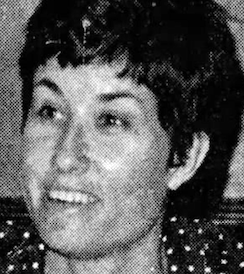
In contemporary education, mathematics education—known in Europe as the didactics or pedagogy of mathematics—is the practice of teaching, learning, and carrying out scholarly research into the transfer of mathematical knowledge.

New Mathematics or New Math was a dramatic but temporary change in the way mathematics was taught in American grade schools, and to a lesser extent in European countries and elsewhere, during the 1950s–1970s.
Morris Kline was a professor of mathematics, a writer on the history, philosophy, and teaching of mathematics, and also a popularizer of mathematical subjects.
Founded in 1920, The National Council of Teachers of Mathematics (NCTM) is a professional organization for schoolteachers of mathematics in the United States. One of its goals is to improve the standards of mathematics in education. NCTM holds annual national and regional conferences for teachers and publishes five journals.

André Lichnerowicz was a French differential geometer and mathematical physicist. He is considered the founder of modern Poisson geometry.
Claudia Zaslavsky was an American mathematics teacher and ethnomathematician.

Discovery learning is a technique of inquiry-based learning and is considered a constructivist based approach to education. It is also referred to as problem-based learning, experiential learning and 21st century learning. It is supported by the work of learning theorists and psychologists Jean Piaget, Jerome Bruner, and Seymour Papert.
Mathematical anxiety, also known as math phobia, is a feeling of tension and anxiety that interferes with the manipulation of numbers and the solving of mathematical problems in daily life and academic situations.
Reform mathematics is an approach to mathematics education, particularly in North America. It is based on principles explained in 1989 by the National Council of Teachers of Mathematics (NCTM). The NCTM document Curriculum and Evaluation Standards for School Mathematics (CESSM) set forth a vision for K–12 mathematics education in the United States and Canada. The CESSM recommendations were adopted by many local- and federal-level education agencies during the 1990s. In 2000, the NCTM revised its CESSM with the publication of Principles and Standards for School Mathematics (PSSM). Like those in the first publication, the updated recommendations became the basis for many states' mathematics standards, and the method in textbooks developed by many federally-funded projects. The CESSM de-emphasised manual arithmetic in favor of students developing their own conceptual thinking and problem solving. The PSSM presents a more balanced view, but still has the same emphases.
Statistics education is the practice of teaching and learning of statistics, along with the associated scholarly research.

Mathematics: The Loss of Certainty is a book by Morris Kline on the developing perspectives within mathematical cultures throughout the centuries.
The Secondary School Mathematics Curriculum Improvement Study (SSMCIS) was the name of an American mathematics education program that stood for both the name of a curriculum and the name of the project that was responsible for developing curriculum materials. It is considered part of the second round of initiatives in the "New Math" movement of the 1960s. The program was led by Howard F. Fehr, a professor at Columbia University Teachers College.
Howard Levi was an American mathematician who worked mainly in algebra and mathematical education. Levi was very active during the educational reforms in the United States, having proposed several new courses to replace the traditional ones.
Robert B. Davis was an American mathematician and mathematics educator.
Teri Perl is an American mathematics educator, author of mathematics resource books, and a co-founder of The Learning Company.
Margaret E. Baron was a British mathematics educator and historian of mathematics known for her book on the history of calculus.

Sheila Tobias was an American college administrator who studied the gender gap in math and science at the college level.

Erna Beth Seecamp Yackel was an American college professor and math educator. She was a member of the faculty at Purdue University Northwest from 1984 to 2004.
Arthur "Art" J. Baroody is an educational psychologist, academic, and an expert in mathematics education research. He is a Professor Emeritus of Curriculum and Instruction at the University of Illinois at Urbana-Champaign, and a Senior Research Fellow in Morgridge College of Education (COE) at the University of Denver.







